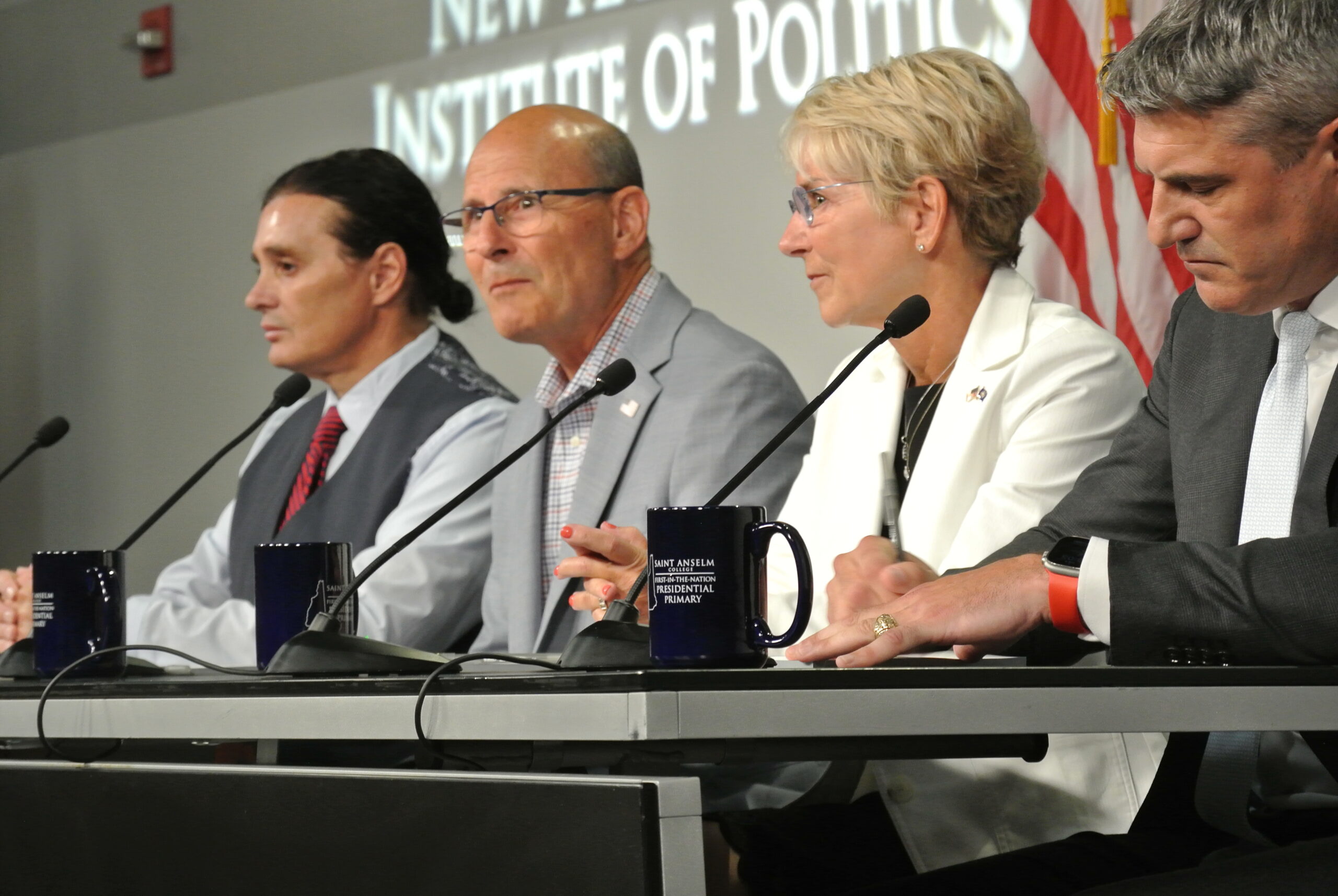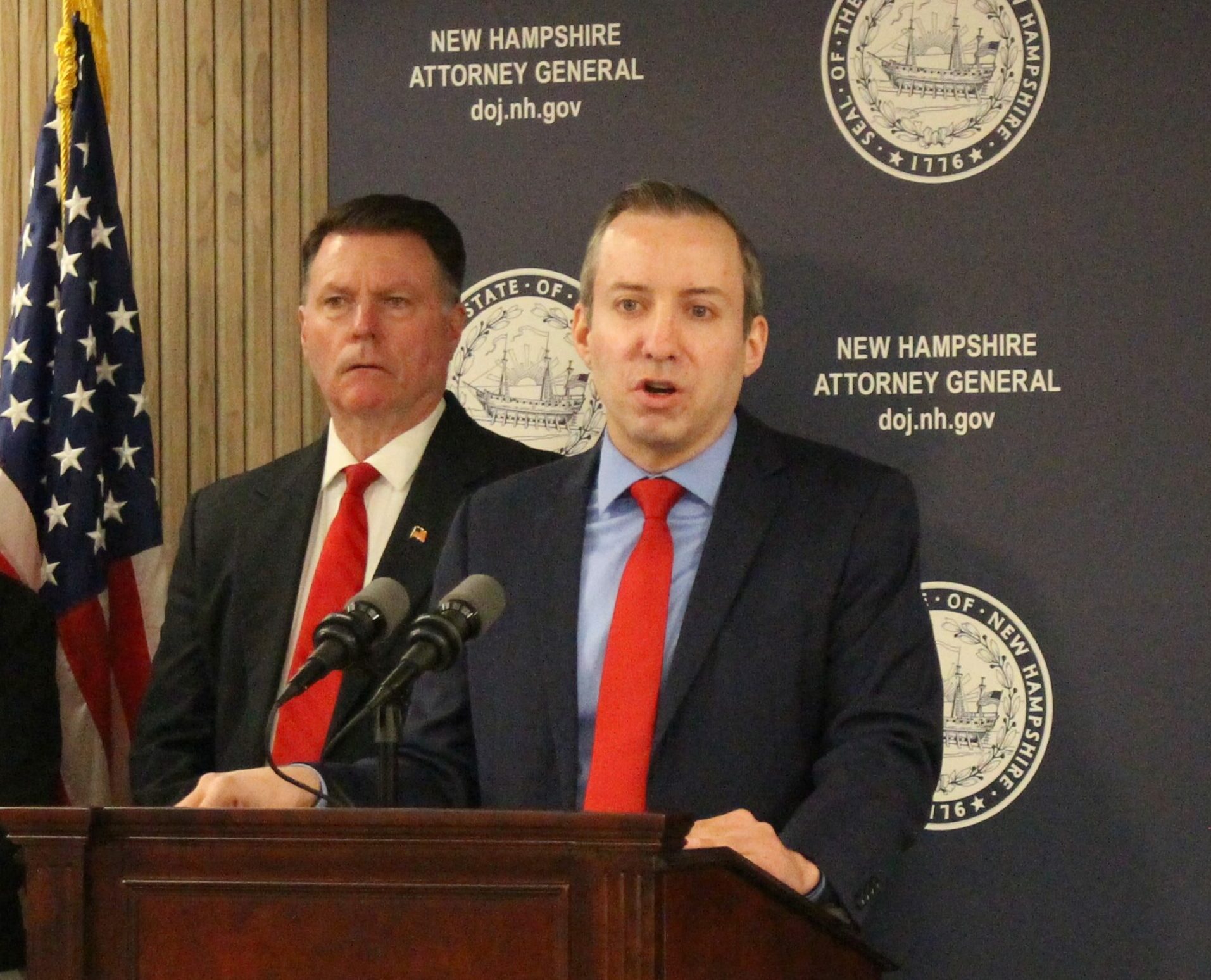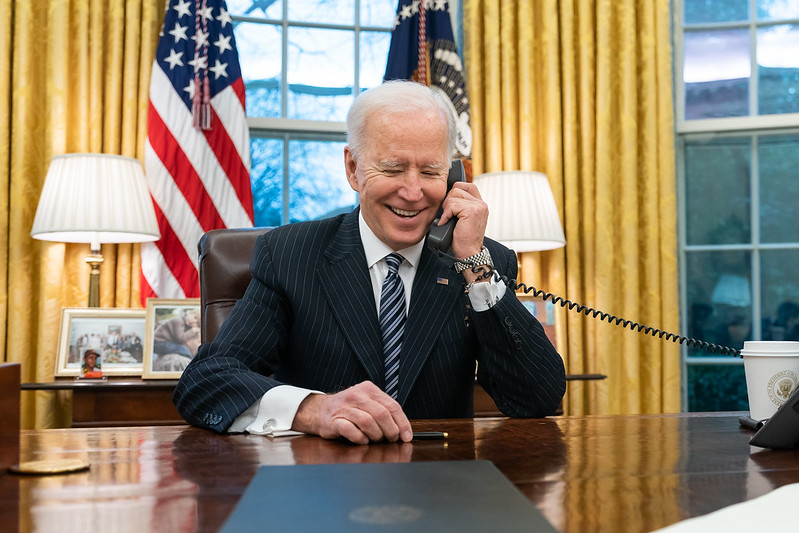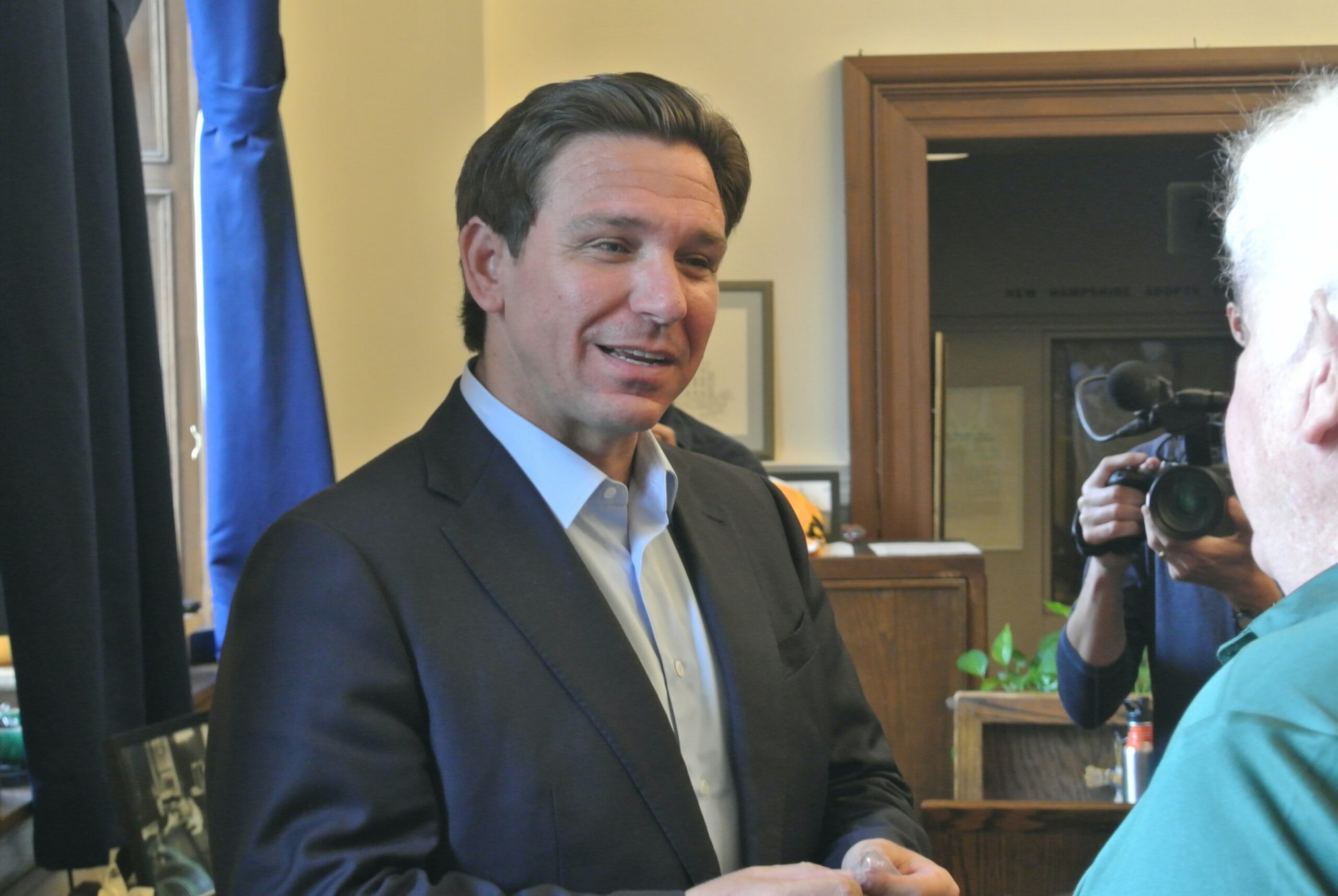Father of Star NH Trans Athlete Busted for Child Porn, Allowed to Attend Girls’ Games

The people who allowed a man convicted of distributing child sex abuse images to roam the sidelines at Kearsarge girls’ soccer games are silent now that he’s been arrested yet again, on charges he possessed yet another stash of child pornography.
But one of the parents who blew the whistle on Marc Jacques, Betsy Harrington, is still speaking out. The mother of a Hillsboro-Deering High School student, Harrington, was shocked when she learned about Marc Jasques’ conviction and the fact his status as a felon was being hidden from parents. Harrington first learned about Marc Jacques after she saw him at a girl’s soccer game earlier this month.
“The school never told the girls, never told the parents,” Harrington said.
Many of the Hillsboro-Deering girls boycotted the game with Kearsarge over Maelle Jacques’ participation, a scenario repeating itself all this season. Nearly 6 feet tall, biological male Maelle Jacques is already a champion girls track athlete, easily beating his biologically female competitors during the state championship this year.
Marc Jacques and Kearsarge have been riding the wave of progressive support for males who identify as female, getting Maelle Jacques nominated for a Biden White House “Girls Leading Change” award.
A day after the game between the Kearsarge and Hillsboro-Deering girls soccer teams, Harrington was horrified to learn about Marc Jacques’ conviction. Harrington started contacting school officials, police, elected representatives — anyone who might be able to do something about Marc Jaques being at the game.
“Someone has to listen,” Harrington said.

Marc Jaques isn’t going to more games any time soon. He’s locked up as a danger to the community after he was arrested Friday for having a new, secret stash of child sex abuse images, according to court records.
Multiple public officials knew about his conviction for months, and still let him go to games to watch his child compete. In fact, according to U.S. Attorney for the District of New Hampshire Jane Young, it took the efforts of many concerned parents like Harrington calling to get the United State Probation Department to take a second look.
“I commend those parents for calling here. I would ask if there is a parent who has a concern that they continue to call,” Young said.
Marc Jaques pleaded guilty in February to sharing dozens of videos and photos depicting child sex abuse images with pedophiles online. Law enforcement found hundreds of abuse videos and photos on Marc Jacques’ digital devices. He claimed in court that he suffers from a sex addiction.
According to court documents. Marc Jaques spent years chatting online with predators, sharing his fantasies about raping children, and even tracking down the identity of at least one of the victims and sharing that identity with other disturbed men online. And yet school officials allowed him to attend Kearsarge girl’s soccer games.
That stands in stark contrast to the treatment of two parents in Bow, N.H., who were slapped with no trespass orders by the Superintendent of Schools for wearing pink wristbands with “XX” written on them to girls soccer game to show their support for girls-only sports.
Kearsarge School District Superintendent John Fortney, Assistant Superintendent Michael Bessette, and School Board Chair Alison Mastin, all failed to respond to requests for comment NHJournal. A review of Kearsarge school board meetings indicates the board held a non-public session in September dealing with the Marc Jacques legal question.
After the guilty plea, Marc Jacques was free on bail pending his sentencing hearing in the United States District Court in Concord. He was sentenced to five years in prison last month, but given until December to report to the Bureau of Prisons to begin his sentence. From his guilty plea through to his arrest last week, Marc Jacques was under no legal restriction to stay away from people under the age of 18.
However, according to his sentencing form filed in court, once he serves his prison sentence and is released on probation, Marc Jacques will be prohibited from any contact with a child under 18, and he will be prohibited from even going to a park, playground, or sporting event where people under the age of 18 will be present.
Chief United States Probation Officer Kevin Lavigne declined to speak in detail about Marc Jacques’ release conditions, and he could not answer why a man deemed too dangerous to be around children once he has served his prison sentence was allowed to be around children before he reported to prison.
Harrington, a retired prison counselor who worked with convicted sex offenders, said Marc Jacques’ treatment throughout the case makes no sense. He first popped up on law enforcement radar for child sex abuse image distribution years before he was arrested, she said.
“I don’t think we know the depths of his offending yet. I think the biggest problem was the length of time he had to reoffend,” Harrington said. “There was too much time between the time he was caught, to the time he pled guilty, to the time he was sentenced, to the time he was incarcerated. It all added up to too much time available to reoffend. Plus he was around girls the whole time.”
Harrington thinks Marc Jacques used the debate over his child Maelle Jacques to create sympathy and get a light sentence and easy pre-incarceration conditions. While Young’s office sought 78 months in prison for Marc Jacques, he ended up with a 60-month sentence. Harrington thinks the many school and court officials who should have known better caved to the transgender narrative Marc Jacques pushed.
“That was why he got the weaker pre-incarceration conditions,” Harrington said.
Before his sentencing, Marc Jacques wrote a letter to the court pleading for leniency. His argument was that Maelle Jacques needed him to support the process of gender transition. In the letter, Marc Jacques stated Maelle Jacques’ mother does not think gender transition is the right treatment.
“Transgendered teens have the highest rate of suicide in the United States, and I am afraid for Maelle and her path if she is forced to live with her mother and her stepmother in a home where she is not supported and feels unwelcome,” Marc Jacques wrote.
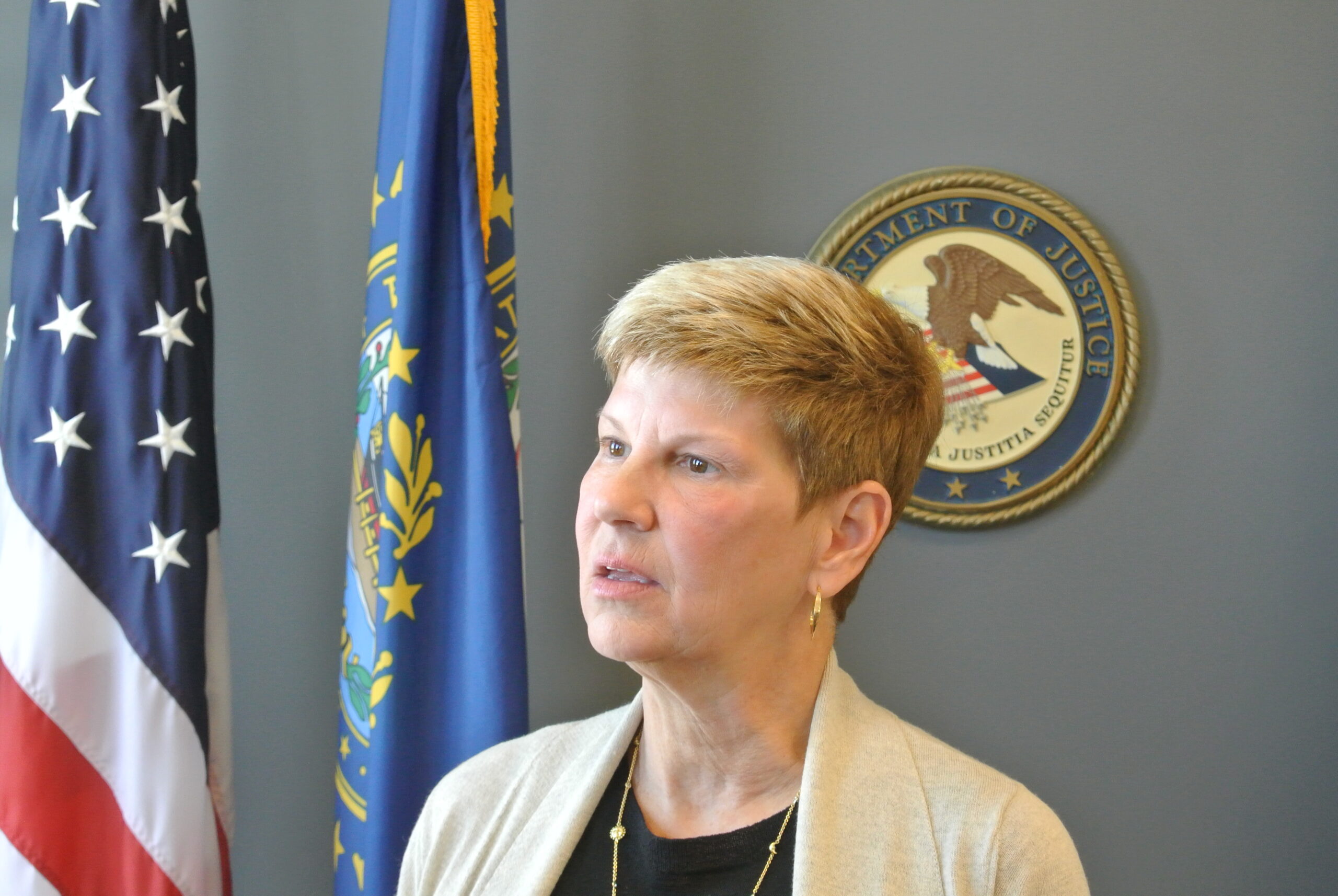
United States Attorney for the District of New Hampshire Jane Young
Young said the Probation Department claimed they had Marc Jacques on some of the strictest pre-incarceration conditions available, and that he had been complying with all of those supposedly strict conditions.
“We considered him somebody who needed to serve a significant period of time in prison, but we also had information about him abiding by those conditions. We are only as good at the information we are given,” Young said.
After a flood of calls from parents like Harrington, the United States Attorney’s Office contacted Probation about concerns that Marc Jacques was a danger. Marc Jacques’ probation officer then checked his monitored internet and found a new, illicit digital storage device was being used. On that device were more images of child sex abuse, according to court records.
“It’s disturbing and quite frankly unacceptable,” Young said.
Young deferred questions to Lavigne, but said this case highlights the need for greater scrutiny of probationers and their conditions. Without tight conditions and assertive probation officers, prosecutors and judges are left in the dark, Young said.



